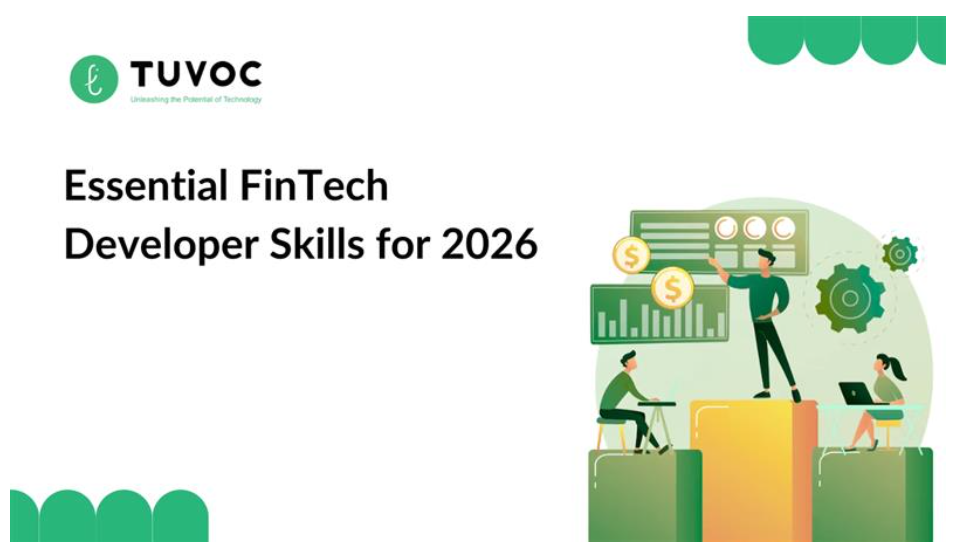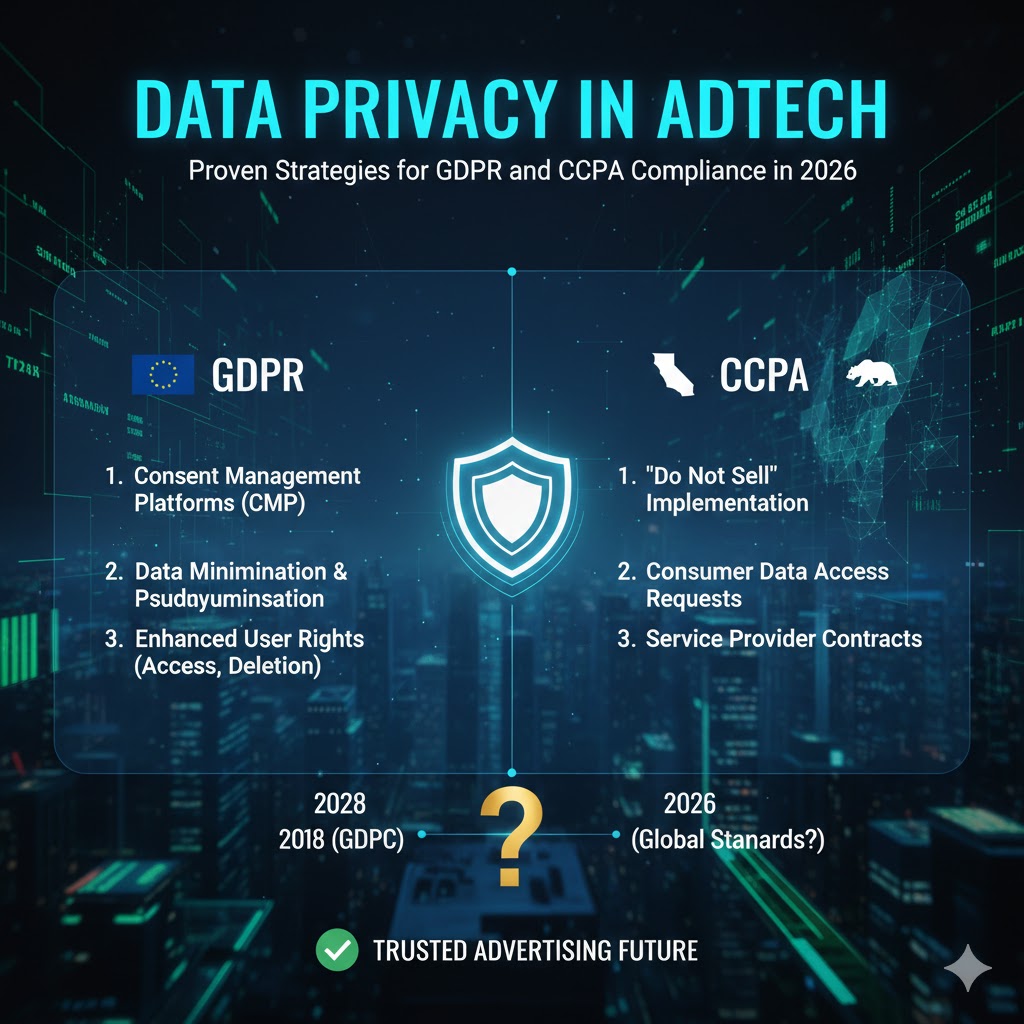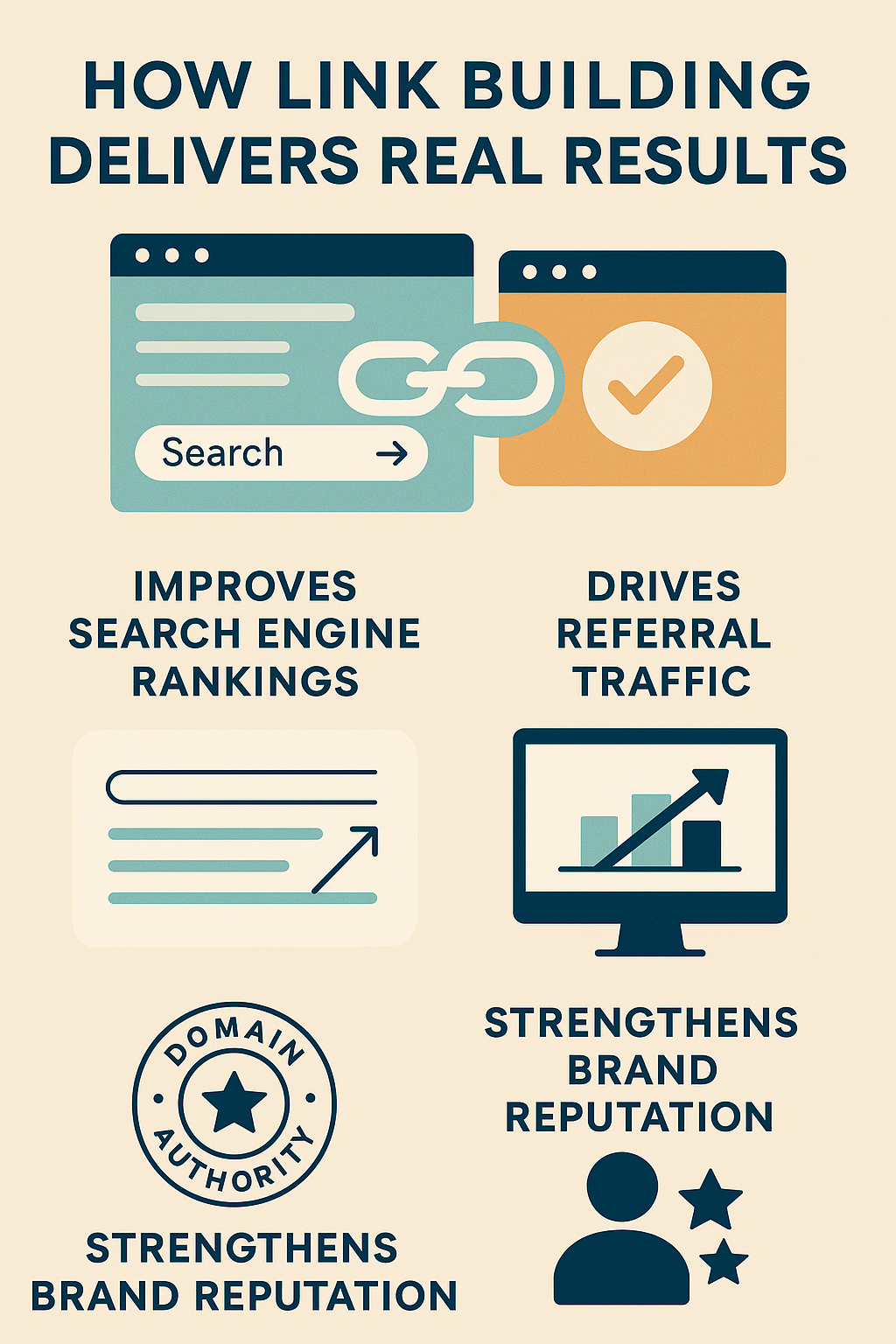In the world of digital marketing, link building remains one of the most powerful strategies to improve your website’s visibility, authority, and rankings. While some may argue that content is king, link building is undoubtedly the crown jewel of off-page SEO. But how does link building deliver real results, and why is it still relevant in 2025?
In this comprehensive guide, we will explore the core benefits of link building, its role in SEO, and how you can implement a successful strategy that drives measurable results.
Table of Contents
What is Link Building?
Link building is the process of acquiring hyperlinks from other websites to your own. These links—commonly called “backlinks“—act as votes of confidence for your content. Search engines like Google use backlinks to determine the credibility, relevance, and authority of your site.
When reputable websites link to your content, it signals to search engines that your site is trustworthy and valuable, which helps improve your rankings on search engine results pages (SERPs).
Why Link Building Matters in SEO
Link building delivers real results because search engines use links as one of the most critical ranking factors. Google’s algorithm considers the quality and quantity of backlinks to a page when determining how to rank it. Here are a few reasons why link building is essential:
Increased Organic Rankings: Websites with strong backlink profiles tend to rank higher in search results.
Higher Domain Authority (DA): Backlinks from authoritative websites improve your domain’s trust and authority.
Referral Traffic: Visitors who click on backlinks from other sites land on your website, potentially increasing conversions.
Faster Indexing: Backlinks help search engine bots discover your site faster.
Brand Exposure: Getting featured on popular platforms enhances brand visibility.
How Link Building Delivers Real Results
Let’s break down how link building turns into real, trackable outcomes for businesses and websites:
1. Improves Search Engine Rankings
Quality backlinks are one of Google’s top three ranking factors. When a high-authority website links to your content, it boosts your credibility in the eyes of search engines. Over time, this leads to improved keyword rankings, which means more visibility for your target audience.
Example:
A fitness blog receives backlinks from reputable health publications. As a result, their articles about weight loss and workout plans rank on the first page of Google for competitive keywords.
2. Drives Consistent Referral Traffic
A well-placed backlink on a relevant, high-traffic website can send a steady stream of visitors to your site. Unlike paid traffic, referral traffic from links is often more engaged and more likely to convert because it comes from relevant sources.
Tip:
Target websites that your audience already trusts, such as industry blogs, news sites, and online communities.
3. Builds Domain Authority and Trust
Domain Authority (DA), developed by Moz, is a metric that reflects a site’s ability to rank on search engines. The more high-quality backlinks you earn, the higher your DA becomes. A higher DA increases your chances of outranking competitors in your niche.
Result:
With a higher DA, your content has a better chance of ranking even for high-competition keywords.
4. Strengthens Your Brand Reputation
Backlinks from respected websites act as endorsements for your content and brand. They boost your credibility and position you as a thought leader in your industry. This improved perception can open doors for partnerships, media mentions, and customer trust.
Example:
An entrepreneur’s startup gets featured on Forbes or Entrepreneur.com. This backlink not only boosts SEO but enhances brand perception among investors and clients.
5. Long-Term SEO Benefits
Unlike paid ads that stop delivering once your budget ends, backlinks continue to add SEO value over time. A single quality link can benefit your SEO for months—or even years—making link building a cost-effective, long-term strategy.
White Hat Link Building Strategies That Work
To get real results, it’s crucial to build links ethically and strategically. Here are some proven white-hat strategies:
1. Guest Posting
Write high-quality content for reputable websites in exchange for a backlink. Ensure the content is relevant and adds value to their audience.
2. Broken Link Building
Find broken links on other websites and offer your relevant content as a replacement. It’s a win-win: you get a backlink, and they fix a bad user experience.
3. Content Marketing
Create valuable, share-worthy content such as infographics, research reports, or how-to guides that naturally attract backlinks.
4. Digital PR
Pitch stories and press releases to journalists, bloggers, and media outlets. Getting featured on news websites often earns backlinks.
5. Link Reclamation
Track unlinked mentions of your brand and reach out to the site owners to request a link back to your site.
Metrics to Measure Link Building Success
To ensure your link-building efforts are delivering real results, track the following metrics:
Number of Referring Domains: More unique domains linking to you = higher authority.
Quality of Backlinks: Links from high-DA, relevant sites are more valuable.
Keyword Rankings: Monitor if your target keywords are climbing up the SERPs.
Organic Traffic: Increased backlinks should correlate with a rise in organic visits.
Referral Traffic: Check which backlinks are sending actual traffic to your site.
Domain Authority (DA): Use tools like Moz, Ahrefs, or SEMrush to monitor your DA growth.
Common Link Building Mistakes to Avoid
To maintain your website’s integrity and avoid Google penalties, steer clear of:
Buying links or using link farms.
Over-optimizing anchor text (use natural language).
Spamming blog comments or forums.
Creating low-quality or duplicate guest posts.
Always aim for quality over quantity.
Final Thoughts
Link building delivers real results because it taps into how search engines rank content: authority, relevance, and trust. By earning high-quality backlinks, you improve your website’s visibility, traffic, and long-term success in search rankings. Whether you’re a blogger, an eCommerce brand, or a startup, a solid link-building strategy is essential for sustainable online growth.
Focus on building relationships, creating valuable content, and being consistent. Link building isn’t a one-time activity—it’s a long-term investment that pays dividends well into the future.











